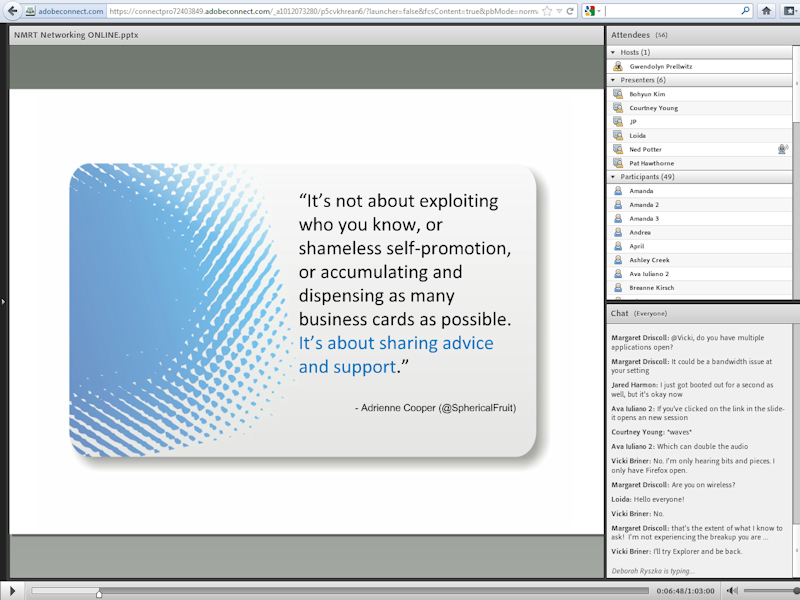So, would you? Most people have an automatic response to this question - many people will say 'yes' straightaway because they love librarianship and know it is largely misunderstood, while others will say 'no' straightaway because they've had a rough time of it.
What I'm interested in is, would you ACTUALLY recommend it to someone, who might then act on your recommendation? I was asked about entering the profession in an email recently, and my reply sounded, I realised as I re-read it, quite negative. That's because I think you have a responsibility when someone wants your advice to actually think about what you're saying! And there's a lot to be said for not-entering librarianship (by the end of the decade who knows how many worthwhile jobs there will actually be, for example) just as there is a lot to be said for entering it (it's ace). I sometimes worry that we're so busy promoting our value and the value of the profession, that we blindly tell everyone to become librarians even though they might not thank us later if they become one.
So I asked Twitter, a brief and unscientific 24hr poll. 133 responses. It started off more or less equal, with recommending just about edging ahead of not doing so - when I tweeted something to this effect, the vast majority of the subsequent votes were in favour of recommending it. So I don't know if that's because people who hadn't previously voted felt moved to 'defend' the profession, or just a coincidence.
So of the 133 respondents, 72% would recommend this profession of ours.
Here's the split by country. This started off VERY interesting because the US had 100% of voting no, but then every single other vote from that country was yes so it ended up being a landslide in favour of recommendation... Ireland, from this miniscule sample-size, doesn't look much fun.
So would you recommend librarianship to a friend? I'd like to hear what you think in a comment.
Some reasons I can think of why I wouldn't recommend it:
- you can't avoid starting at the bottom (can't do the MA until you've had a year of experience, can't get a higher graded job without the MA);
- some career paths hit the buffers very early on unless the right person happens to retire / move etc;
- the long-term future of the profession is far from certain;
- constantly fighting peoples' misconceptions of what we do and how valuable it is (I think the need to do this may fade over time because I'm far less fussed about it than I used to be);
- there are far more capable librarians than there are decent posts;
- the money isn't amazing for the first few years (I know it's very cool to not care about money but when you're having to buy new shoes for your toddler every 3 months, you do);
- you have to fork out a fortune to do the MA but, if you think about it, the difference between librarians with the Masters and those without it is very rarely the Masters. It's a qualification that is both essential and of questionable value. .
Some reasons why I would recommend it (heavily academic-librarianship bias here):
- it's fantastically engaging;
- the community (if you chose to be part of it) is kind, fun, and unremittingly helpful and happy to share information and advice;
- you get to work in a role that helps people, which is genuinely fulfilling even for a partial-cynic like me;
- unless you're unlucky you won't be expected to work longer than the hours of your contract (so many non-librarians I know work all the hours God sends, and are incredibly jealous of the flexitime scheme I'm on);
- libraries are supportive employers, generally;
- you get to investigate, write about and train people on stuff you're interested in anyway, in my case;
- you can do academicy stuff like presenting at conferences and writing papers, without having to actually BE an academic;
- once you get up the ladder a bit you get a lot of freedom and your time is self-directed as well as self-managed;
- the people you work with are NICE. .
For me, my day to day environment is the most important thing. I'd rather live in a smaller house in a nicer area than a grand house further away from town. I'd rather work in a nice room with nice people who will understand if I need to go home and pick up my daughter from nursery, than have a high status job with a company car a career trajectory ending in a six-figure salary. My job is challenging but fun, it suits ME better than any profession I could imagine.
But everyone is different, and I'm already entrenched in this profession, whilst at the same time developing the skills to keep working if this profession ceases to exist - that's a very different situation from advising someone to just now start applying for entry-level library posts with a view to doing their Masters in October 2014 and maybe, just maybe, getting a job they really want in 2017ish.
Where do you stand on this? What would you add?




